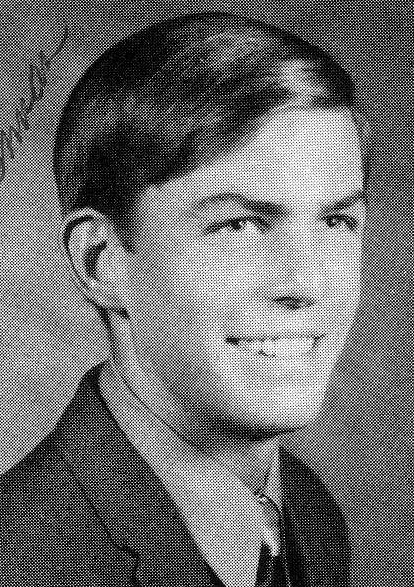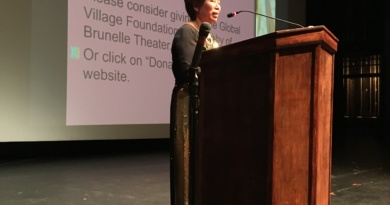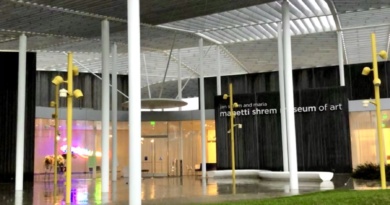Davis High grads navigate conflict on campus
PHOTO: Students at Columbia University protest for divestment on the campus’ South Lawn on April 21.
By Harald Tollerup
BlueDevilHUB.com Staff–
College students around the country have set up encampments to protest the war in Gaza, demanding an end to campus investments in Israel. Counter-protesters who support Israel have also been a presence, leading to a volatile situation on some campuses.
As of May 17, about 2,900 people participating in the encampments have been arrested according to the New York Times. Davis high graduates, now college freshmen, found themselves in the middle of the controversy.
UCLA
On March 30, tensions escalated at UC Los Angeles as the pro-Palestinian encampment was declared unlawful. Donning masks and carrying metal pipes, counter-protestors soon flocked to campus. They tore down barricades and attempted to breach the encampment walls, using pepper spray against pro-Palestinian activists.
According to Max Davis-Housefield—a reporter for UCLA’s student paper, the Daily Bruin—fireworks were fired off that night.
Davis-Housefield, who graduated from Davis High in 2023, was on the ground recording.
“The whole time I was thinking to myself ‘Where is law enforcement? Why isn’t anyone doing anything about this’,’’ Davis-Housefield said. “As a journalist, it was definitely the most scared I have been.”
By 4 in the morning, the police finally moved in, and the counter-protestors dispersed but the encampment was left alone. Davis-Housefield finally returned home at 6 in the morning. UCLA’s encampment was not completely cleared till May 2. The campus has mostly been peaceful since then. “I expect things to be peaceful moving forward,” he said.
Arizona State University
72 people were arrested at Arizona State University on April 27 after police cleared an encampment that had been established the day before. Only 15 of the 72 that were arrested were ASU students, according to a university statement.
For 2023 Davis High graduate Alex Miyamoto, the encampment has just been something observed in the distance.
“I got out of school two weeks ago so I haven’t been there,” he said. Miyamoto credits his lack of time to finals and a focus on school rather than extracurricular activities.
He remembers observing the encampment in the morning, then having it suddenly disappear at night. “It’s definitely something I have separated myself from,” he said.
UC Santa Cruz
Mayah Moore graduated from Davis High in 2023. As a Jewish student, Moore has been involved in solidarity marches and movements for Israel after the Oct. 7 Hamas attack. Moreover, Moore has repeatedly entered the encampment to document what she says are anti-Semitic signs.
The UC Santa Cruz encampment began May 1, but has not seen the level of violence and tensions seen at Columbia or UCLA. The encampment is actively negotiating with the university over issues relating to the war in Gaza.
“I kinda like walking through (the encampment) once every few days to take pictures of any signs that might be crossing the lines, and that should be reported,” Moore said.
Moore remembers one specific instance when she went into the encampment. “While I was walking through I was taking pictures, and someone came up to me and asked why I was taking pictures,” she said.
A conversation soon arose about the use of the word intifada which to protestors means revolution but to Moore has a deeper historical context.
“I take issue with that kind of language … historically the intifada was a bunch of suicide bombers that were killing people in synagogues and schools in Israel,” she said.
New York University
On the morning of May 3, New York City police cleared an encampment on the campus of New York University. Thirty-seven people were arrested.
Marcos Zaragoza is a freshman at NYU and has mostly been a bystander.
“Going to classes, they are always there,” Zaragoza said. “I’ve definitely felt the presence of it (the encampment).”
At the moment, classes are taking up much of Zaragoza’s time.
“I wouldn’t say I’m that involved. Probably not as involved as I would like,” he said.
One time, Zaragoza did join the protest. He was heading to the library, which he found closed when he arrived.
He then decided to head over to the encampment nearby. “I just felt compelled to,” he said.
When he arrived, police were positioned just outside and protestors were yelling at them. Ten minutes later, police began arresting protestors.
Zaragoza feels conflicted over the intensity of the issue.
“I have some Jewish friends that do feel nervous. It’s just kinda charged,” he said.




